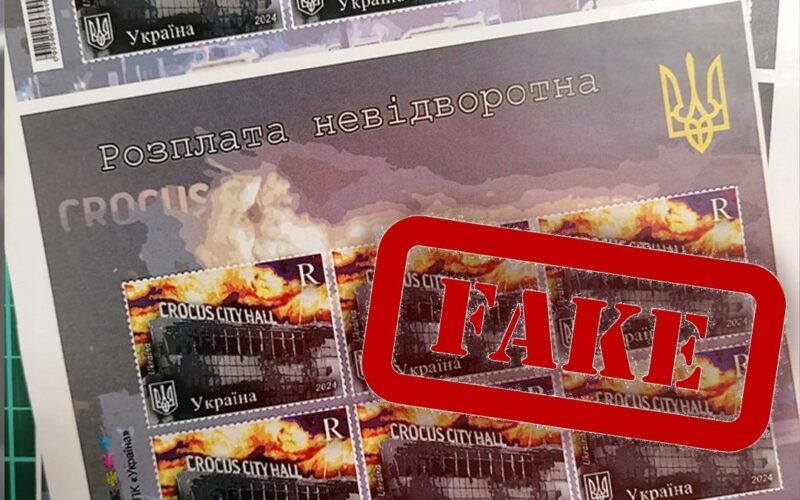In a recent disinformation campaign, fabricated images of Ukrposhta stamps have been circulating on the Internet. These counterfeit stamps depict the burning Crocus City Hall, a shopping center that became the site of a violent incident on March 22, accompanied by the ominous declaration, “Retribution is inevitable.” The Center for Combating Disinformation has quickly responded, clarifying that these stamps are inauthentic and are not issued by Ukrposhta, Ukraine’s national postal service.
The dissemination of these forged images appears to be a part of a broader strategy by the Kremlin aimed at obscuring the truth surrounding the events of March 22. Notably, a detailed investigation by Bloomberg has found no evidence linking Ukraine to the attack at Crocus City Hall. Despite the lack of credible evidence, the Russian government has been actively promoting the narrative that Ukraine was involved in this act of violence. This tactic of disseminating falsehoods and engaging in deceptive practices seems to be a calculated effort to rationalize Russia’s aggressive actions and involvement in acts of terrorism within Ukraine.
The concoction of a so-called “Ukrainian trail” serves a dual purpose. Firstly, it aims to sow seeds of terror within the Russian populace, creating a climate of fear conducive to the Kremlin’s agenda. Secondly, it is seen as a means to justify a potential large-scale mobilization and escalate hostilities and aggression towards Ukraine. This strategy reflects a longstanding pattern of behavior by Russian authorities, who frequently employ intimidation and fearmongering as tools to enact repressive legislation and consolidate power.








